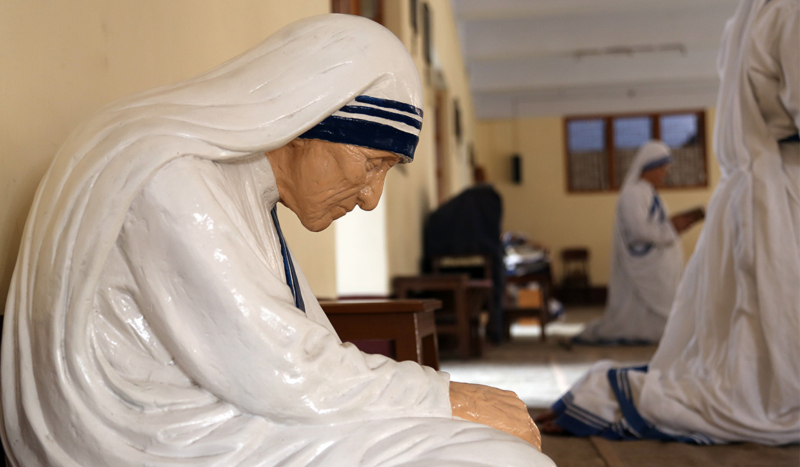
Statue of Mother Theresa in the chapel of Mother House, Kolkata, India / Adobe Stock
A recent decision by the eastern Indian state of Jharkhand to rename its public health clinics after St. Teresa of Calcutta has ignited political tensions, drawing both praise and political opposition.
Chief Minister Hemant Soren unveiled the proposal July 24, confirming that the existing Atal Mohalla Clinics would be rebranded as Mother Teresa Advanced Health Clinics, UCA News reported. These state-run facilities provide low-income communities across the state with essential medical services, such as free consultations, medications, and diagnostic tests.
Soren, who leads the regional Jharkhand Mukti Morcha (JMM) party, said the change was approved during a cabinet meeting alongside several other measures. The clinics were originally named after Atal Bihari Vajpayee, the late leader of the Bharatiya Janata Party (BJP) and India’s first BJP prime minister.
Criticism of the decision came swiftly from BJP leaders, who accused the JMM government of using the renaming as a means to promote religious conversion. Amar Kumar Bauri, a senior BJP figure, questioned the choice and characterized it as part of a “larger conspiracy,” asking, “What contribution has Mother Teresa made to Jharkhand?”
Supporters of the change, including members of the local Catholic community, cited Mother Teresa’s long-standing service to India’s poor, including in Jharkhand.
“It is a fitting gesture to honor St. Mother Teresa’s profound compassion for the sick and suffering, regardless of creed, caste, or color in India,” Archbishop Emeritus Felix Toppo of Ranchi told UCA News July 28.
“The BJP is only spreading the false narrative of religious conversion ever since it formed the federal government in 2014 and gained power in some states,” he said.
Catholic social activist Ajit Paul noted that the Missionaries of Charity, the order founded by Mother Teresa, operates multiple centers in Ranchi, the capital of Jharkhand, and that she had visited the region many times during her life.
The JMM defended its decision and criticized the BJP’s reaction, according to UCA News. In a press statement, the party argued that the opposition was attempting to “polarize votes in the name of religion and nationality” and pointed out that the BJP had frequently named public projects after its own leaders.

